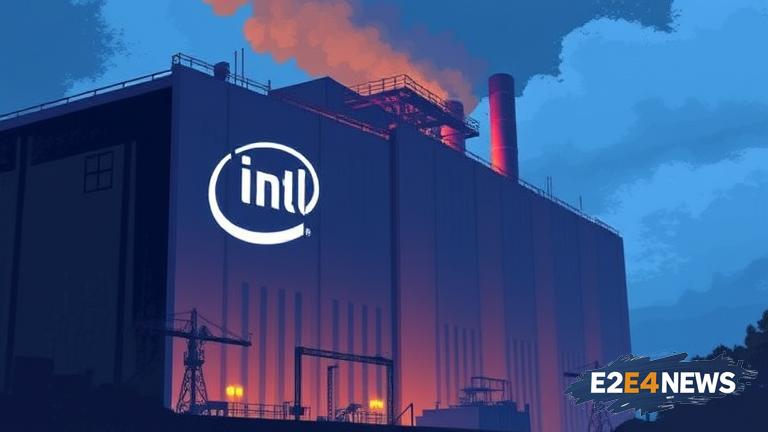In a significant shift in its global expansion plans, Intel has announced the cancellation of its proposed chip plant in Germany. This move is part of the company’s broader efforts to streamline its operations and optimize its resources globally. The decision comes as Intel faces increasing competition in the semiconductor industry and grapples with the challenges of a rapidly changing technological landscape. The German plant, which was initially planned to be a major manufacturing hub for Intel, will no longer be part of the company’s strategic plans. Intel’s decision is expected to have significant implications for the global semiconductor industry, as well as for the local economy in Germany. The company had previously announced plans to invest heavily in the German plant, which was seen as a key component of its efforts to expand its manufacturing capabilities in Europe. However, in light of the current market conditions and the need to prioritize its resources, Intel has decided to abandon these plans. The cancellation of the German plant is part of a larger trend of consolidation and streamlining in the semiconductor industry, as companies seek to adapt to changing market conditions and technological advancements. Intel’s decision is also seen as a reflection of the company’s efforts to focus on its core strengths and prioritize its investments in areas that are most critical to its long-term success. The company has stated that it will continue to invest in its existing manufacturing facilities and will focus on developing new technologies and products that will drive growth and innovation in the industry. Despite the cancellation of the German plant, Intel remains committed to its European operations and will continue to maintain a significant presence in the region. The company’s decision has been met with disappointment from local officials and industry leaders in Germany, who had seen the plant as a major opportunity for economic growth and development. However, Intel’s decision is also seen as a necessary step to ensure the company’s long-term viability and competitiveness in a rapidly changing industry. As the semiconductor industry continues to evolve, companies like Intel must be able to adapt quickly and make tough decisions to prioritize their resources and investments. The cancellation of the German plant is a significant example of this trend, and it will be important to watch how Intel and other companies in the industry navigate these challenges in the coming months and years. In conclusion, Intel’s decision to cancel its plans for a German chip plant is a significant development in the global semiconductor industry, and it reflects the company’s efforts to streamline its operations and prioritize its investments in a rapidly changing technological landscape.
